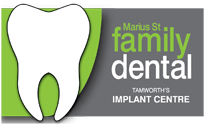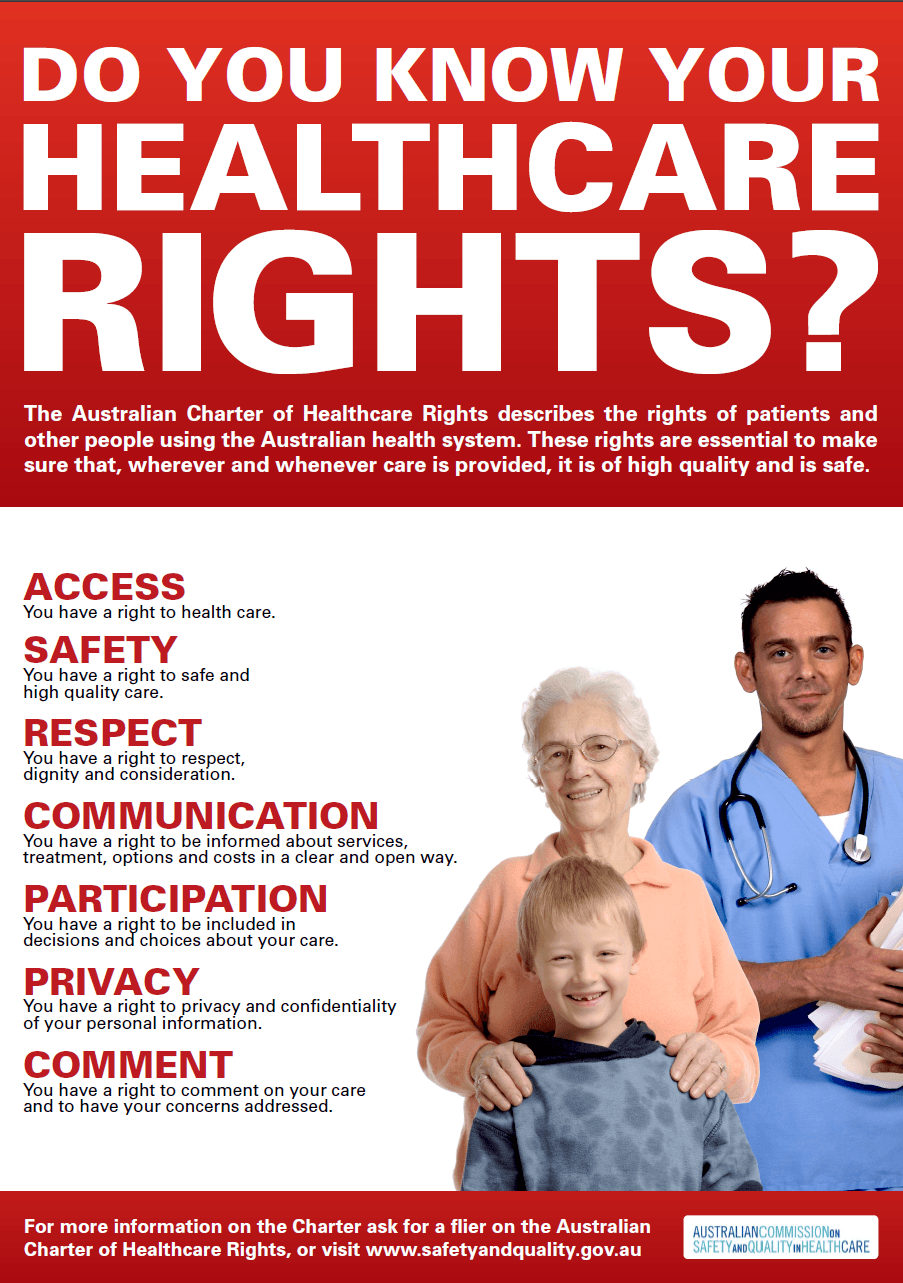Dental Anxiety Management
Fear of dentists is extremely common. A huge portion of our patients explain to us their fear of dental treatment, so there is nothing to be embarrassed about, and you are far from alone in this. Unfortunately though, we can only help those that come through our doors... and research has shown that each year, half a million Australians do not go to the dentist because of fear.
Firstly, congratulate yourself for being on this website page - we appreciate that it would have been much easier to just avoid dentistry altogether.
Although it's never nice to hear "no offence, but i really hate dentists" as the first thing so many people say to you, we get it, its really hard on many levels. We won't take it personally, but please believe us when we say we are here to help you, not hurt you.
Common causes of dental anxiety and what could help
A fear of needles
Concern of treatment hurting, including fear of not being fully numb
Sound or vibration of the drill
Loss of control: a feeling of vulnerability being lent back in the dental chair or not knowing what is going on
Fear of choking on the water that runs to the back of the mouth
Feeling that you can't breathe
Embarrassment at someone looking at your teeth, or worry about the condition of your teeth
Financial cost of dental treatment
Previous bad reaction to local anaesthetic or fear of being numb
Being a survivor of physical or sexual abuse
Trust issues with dentist - are they doing what is best for me?
Previous bad experience with a dentist or doctor
Severe Gag reflex
Approaching Dental Anxiety
1. Why is it important to identify my fears?
What goes through your mind when you think about going to the dentist? What is it that gets your heart racing? When we ask patients, a lot of the time they have difficulty pinpointing what it is about coming to see us they hate so much. All they know is they hate it!
However, dental anxiety, although so common, is so complicated and everyone is unique in their story. Unless you let us know what it is you fear, we are just assuming - and you know what they say about assuming. The last thing we want is to do something that (to us) is routine - for example - lean you right back in the chair, and make you uncomfortable and add to your dislike of dentists.

Identifying what it is that makes you uncomfortable will allow you to understand your fear more, and then you can tailor your appointment with us to minimise those things. You do not have to explain yourself as to why those things scare you if you do not want to.
We have made a document to assist this process- find it here. We recommend going through the questions in your own time and sending it to us before your appointment, as often people have a mental blank when they're in the dental chair.
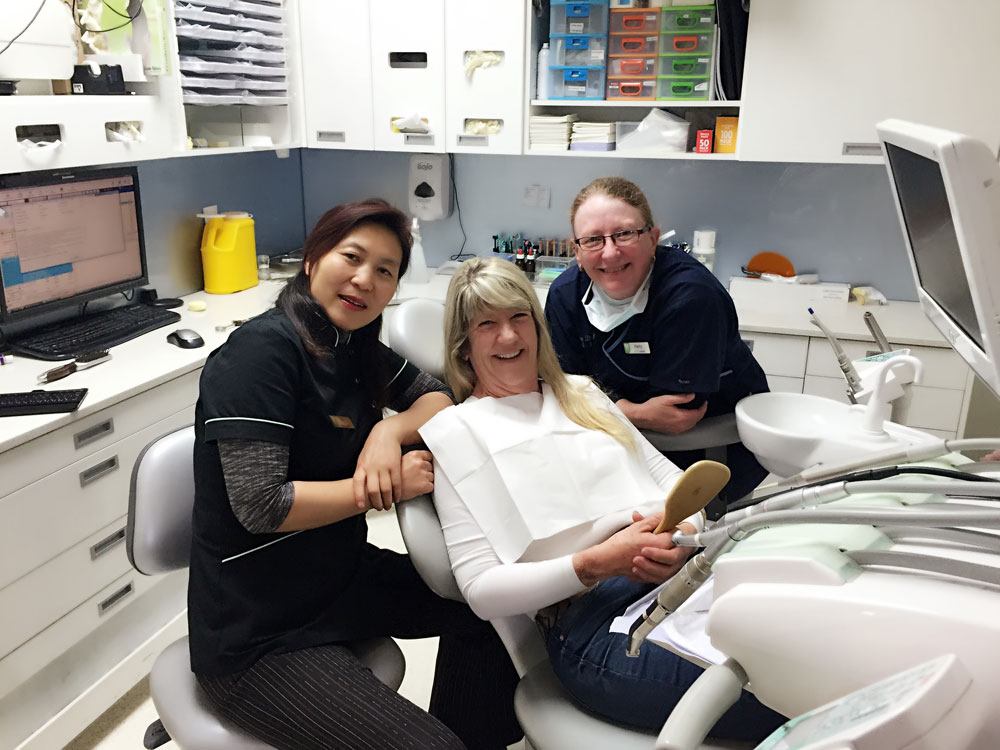
2. Two -Way Communication
Being afraid of the dentist is not weird, or abnormal, and it definitely doesn't make you a sook.
If you don't think you'll be able to talk about it in the dental chair, you could try:
- talking with a friend or family member that is a good listener
- talking to our reception staff in a non-clinical room or via phone
- fill out our form and email it to us, or bring it in with you
- book an appointment but specify that you want a verbal consultation only (so essentially, a good talk. no clinical anything - we wont even have our mask or gloves on). We can do this in the clinical room or we can do it in a consult room with no dental chair, it is up to you!
The biggest single thing to improve your experience with us is two-way communication. Once we know what worries you, we can suggest things we can do for you. You let us know what you would like to try. It is also important that we communicate regularly through any treatment - we will explain what we are doing before we do so, and check in regularly. You let us know how you're going, what helped and what didn't, and if you ever need a break through the appointment.
3. Find the right dentist for you.
This is critical!
We are dentists but we are also just normal people, all with our own personality. Find someone who you trust and makes you feel comfortable - one that you would like, if only they weren't a dentist!
Marius St Family Dental is family run, local and here to stay - so we can assure you that any clinician in our practice is well-trained, will offers quality treatment, and are good, ethical people who only ever do their very best to help their patients. We also work together as a team, so we aren't going to get upset if you would like to meet a few different clinicians to find the best fit. In fact, we encourage it! There are male and female dentists, it's okay to have a preference. See each profile in 'our team'.
Be open with our reception staff, they know each clinician well and can suggest to you who may be best for your individual needs.
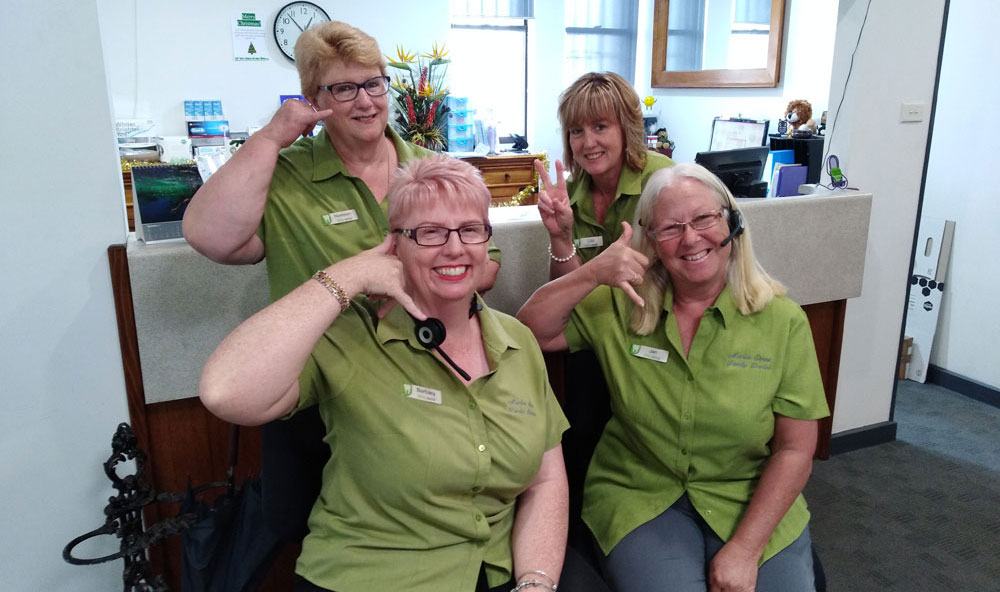
4. Find what helps with your dental anxiety
Try different things until you've found a way to make going to the dentist manageable - even if it is getting put to sleep, at least you are getting treatment! Read below suggestions as to things that may help for each of the common fears and try the ones that you feel would help - tell us what works and doesn't work for you and we will note them for you to make your experience more personalised.
General Suggestions
- If you have severe anxiety, you have the option of us providing you anti-anxiolytic medication such as valium before your appointment, or to have happy gas (nitrous oxide) during treatment. We will explore this option more below.
- Come in sooner rather than later - it is much more pleasant for everyone involved to have a planned appointment instead of an emergency one where you have a spreading infection and pain. Preventative dentistry is much less intense - a lot of it is just showing you where you are missing and helping to reduce your disease risk. Read about why is is important to come in before you have symptoms.
- Lots of numbing gel before the injection
- Distract yourself from the dental environment - bring earphones or ask the dentist to play something you enjoy
- Book your appointment where you feel most comfortable in the day - for example, first thing in the morning after breakfast so you dont have the opportunity to spend the whole day worrying. The first appointment and the appointment right after lunch ensures we are running on time so you don't have to spend time in the patient lounge.
- Make sure you've had a good meal - having enough blood sugar helps you to manage stress better.
- Bring a supportive friend or family member - they can be in the room with you or wait in the lounge if you prefer.
- Try to direct your thoughts before/during the appointment - focus on the music and your breathing.
Happy Gas (nitrous oxide)
Happy gas which is nitrous oxide gas, is mixed with pure oxygen and delivered via a nasal mask (as shown below). It achieves conscious sedation, which means that you are still awake but your senses are altered.
Benefits: It is extremely safe and completely reversible
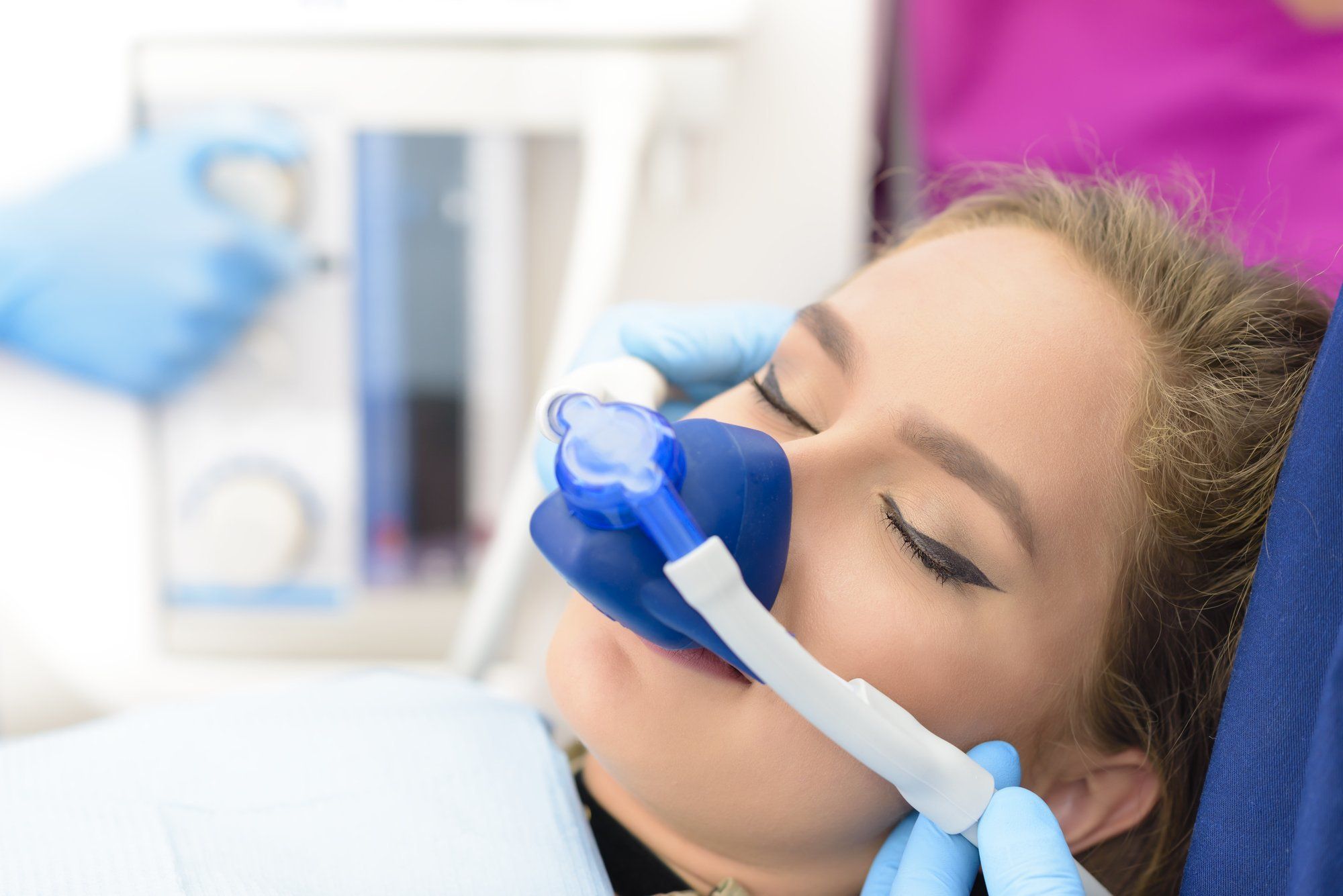
Valium (diazepam)
Valium is a medication that belongs to the benzodiazepine family. It is most commonly used as an anti-anxiety drug. As it is such a good relaxant, it is also used as a muscle relaxant.
- It is prescription only. We recommend patients to come in 1 hour before their appointment to take their dosage. This allows us to control dosage and also stops you from needing to pay for a whole bottle if you only need 1 dose. We provide this free of charge.
- Valium has a long half-life of 11 hours. This means it takes a long time to disappear from your system. This is the biggest drawback of valium. We recommend that you do not drive for 24 hours if you are feeling any effects.
- You will need someone to drive you home after your appointment as you will still be feeling the relaxed effects and your reaction speed may be decreased.
More Information
https://www.dentalfearcentral.org/fears/
We have found this to be an extensive and excellent resource for patients who suffer from dental anxiety. They go through the common fears in detail with very well-written related pages - hats off to the makers of this wonderful website!
